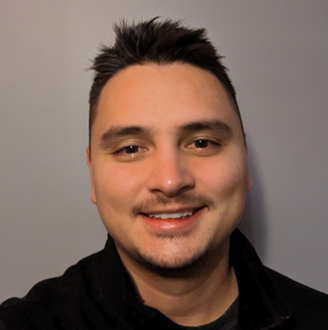AS TOLD TO ELAINE COBURN...
Much of my undergraduate life as a Health Sciences major at the University of Ottawa was about trying to figure out my interests and what I wanted to do in terms of a career. Although my parents encouraged me to pursue a career in medicine, they were always supportive when I chose my own path.
Although my parents encouraged me to a pursue a career in medicine, they were always supportive when I chose my own path.
Initially, after taking a few elective courses, I was drawn to the social sciences. I remember really enjoying a class on the Sociology of Health, which was my introduction to sociological concepts. I learned about Emil Durkheim’s concept of “anomie” to describe contexts when norms and values are unclear, and Eric Klinenberg’s‘ “social autopsy”, which investigated the causes of more than 700 deaths during the 1995 heat wave in Chicago . Upon finishing my undergraduate studies, I still didn’t have a clear sense of where I wanted to be and what I wanted to do.

Photo of Stefan Treffers
After a year of working a retail job, I decided to pursue a Master’s Degree and after applying to several schools, I settled on the University of Windsor. My choice was influenced, in large part, by Windsor’s proximity to Detroit, a city with a rich social and political history and, in 2013, in the midst of profound changes, heading towards municipal bankruptcy. I didn’t appreciate the full breadth of Detroit’s fiscal crisis and restructuring until years later when I made it my dissertation topic at York University.
Windsor is where my sociological imagination was first sparked. There, I took a keen interest in diverse topics including urban inequality, addiction, policing, and surveillance.
Windsor is where my sociological imagination was first sparked. There, I took a keen interest in diverse topics including urban inequality, addiction, policing, and surveillance. Many of the sociological questions I was interested in, and still think about, were inspired by my back-to-back reading of Thomas Sugrue’s Origins of the Urban Crisis and Loïc Wacquant’s Punishing the Poor and their studies of the legacies of urban poverty, racial inequality, and urban restructuring that continue to shape urban policy in the United States.
I was accepted into the doctoral program at York University, and once here, I intended to study municipal bond markets and bankruptcy. I hoped to better understand the events that had unravelled in Detroit and other cities that were facing deepening fiscal distress. By far, coursework provided the most socially fulfilling part of the PhD. I took the opportunity to take courses outside of the Sociology department, as well, including a transfer credit in a geography course at the University of Toronto under Professor Jason Hackworth, whose work I really admired.
Research Assistantships… introduced me to academic publishing and helped cultivate strong working relationships with professors in and outside of the department. They also helped to pay the bills!
While I enjoyed my short time as a teaching assistant in my first year, I was more comfortable with research assistantships (RAs). Ultimately, these RAships introduced me to academic publishing and helped cultivate strong working relationships with professors in and outside of the department. They also helped to pay the bills! I also joined the City Institute at York, and became affiliated with a research cluster based in the United Kingdom -- both proved vital to maintaining social interaction with other academics when the COVID-19 pandemic began in 2019, and during the subsequent lockdowns.
The dissertation phase of the PhD is a time of intense work and solitude, but this dedicated period of study does not have to come at the expense of a vibrant and healthy balance between work and play! Maintaining this balance was a constant battle for me, but my best days were those when I fell back into a routine of movement, sunshine, play, and social time with my partner, friends, and family.
Maintaining balance [between work and play] was a constant battle for me, but my best days were those when I fell back into a routine of movement, sunshine, play, and social time with my partner, friends, and family.
As I look towards the future, the prospects of a tenured career in academia look increasingly scarce. This trend was already apparent years ago. Given the context, my outlook has been see to my PhD -- Liberty and Security in an Austere City: Security Politics and Urban Restructuring in Post-Bankruptcy Detroit --as a lucky opportunity to intensely study a subject I care about for several years. The world is constantly changing, brimming with opportunities for sociological inquiry! I’m excited to explore potential careers where I can continue to cultivate my sociological curiosity and imagination.
Stefan Treffers completed his PhD in Sociology at York University in January 2025.
